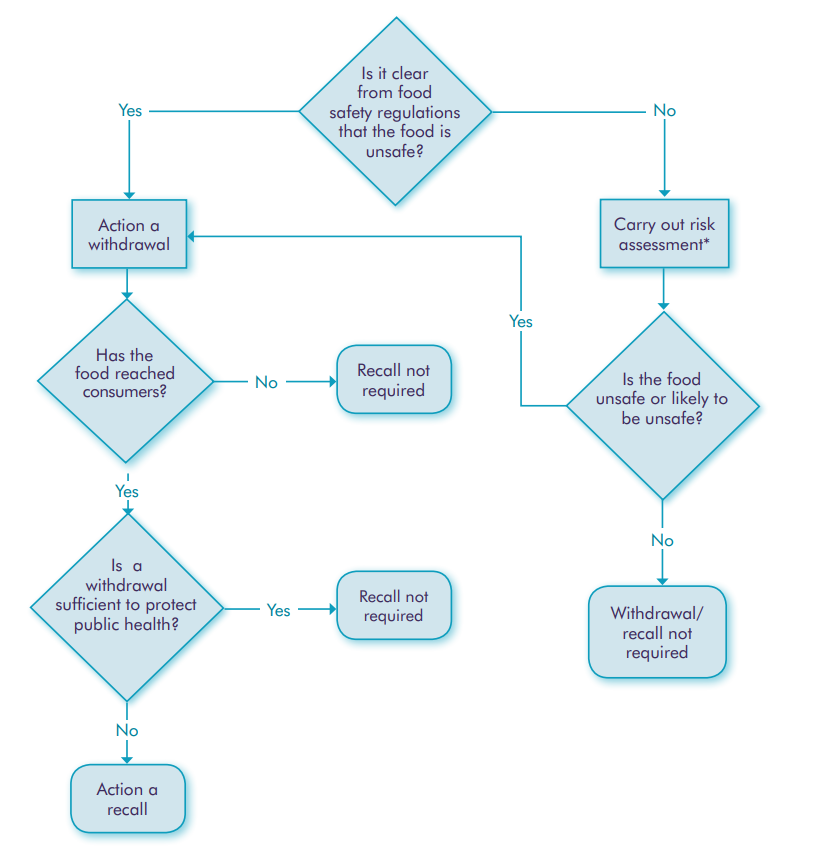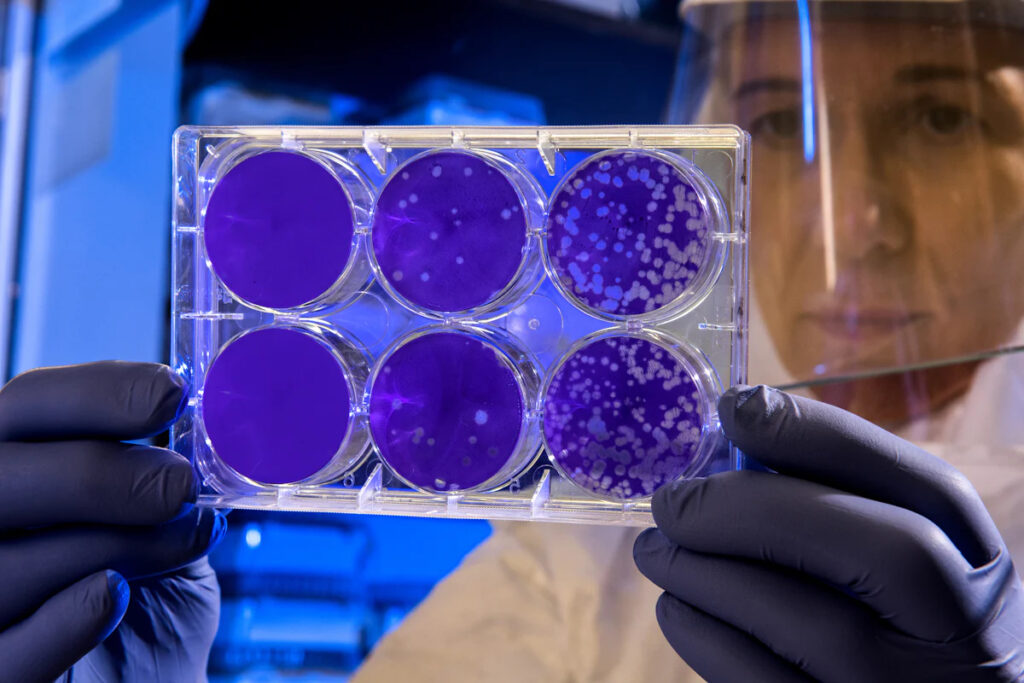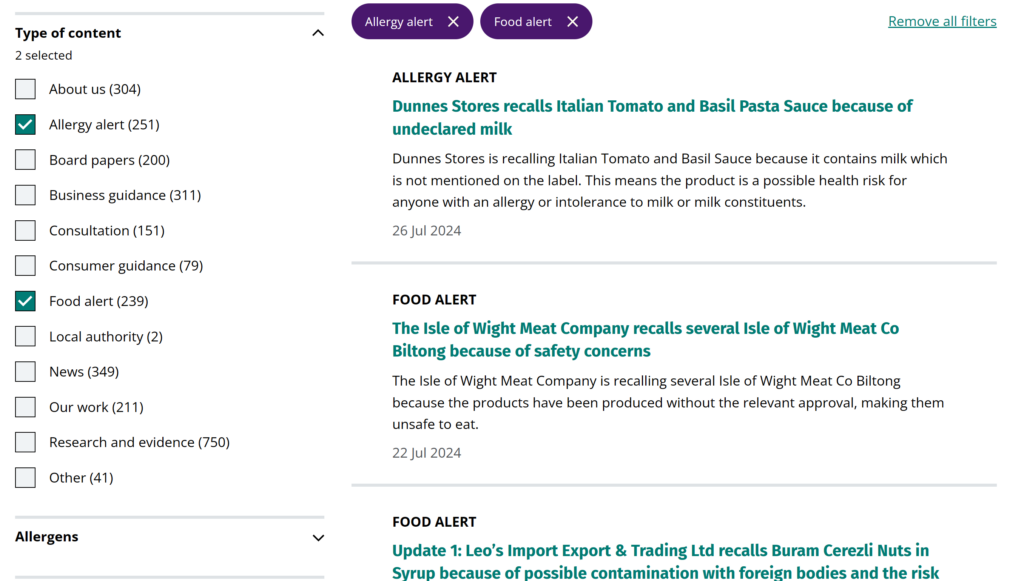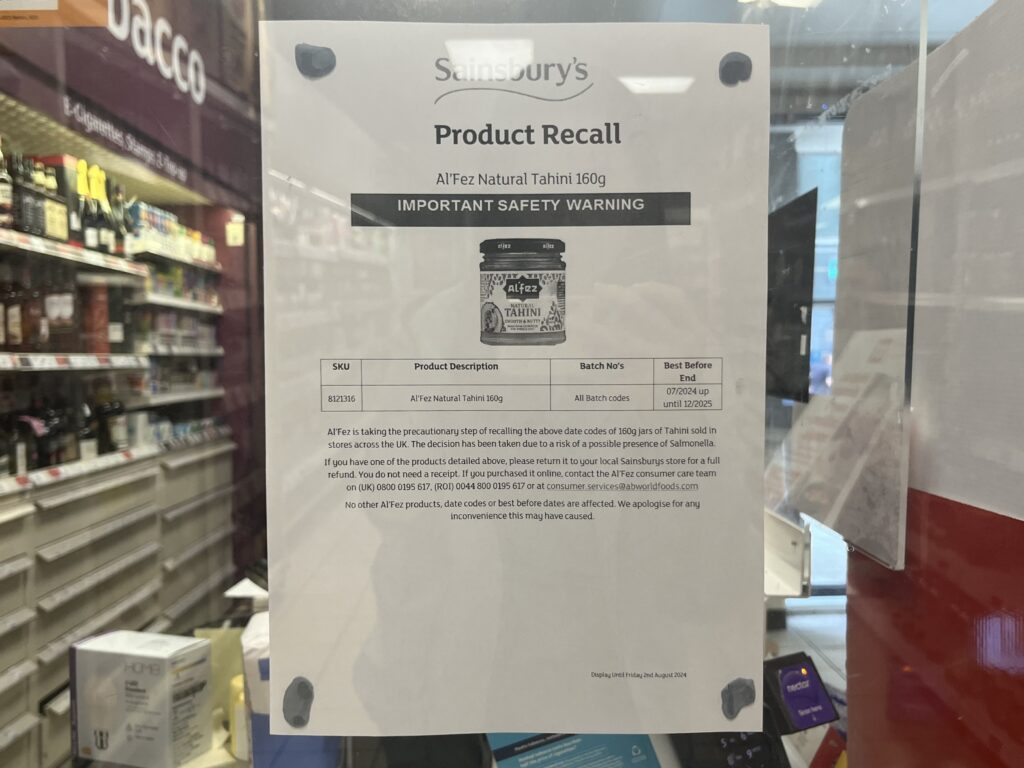Over the past month, the UK experienced a severe food safety incident. An E. coli outbreak linked to lettuce resulted in one death and more than 120 hospitalisations. The UK Health Security Agency (UKHSA) reported two people in England died within 28 days of contracting Shiga toxin-producing E. coli (STEC), one of which was directly related to the infection. Both had underlying health conditions.
The outbreak led several food manufacturers to recall up to 60 products including sandwiches, wraps and salads sold in major supermarkets and retail chains due to suspicions that they were contaminated. The Food Standards Agency (FSA) has identified the lettuce used in these products as the likely source of the outbreak.

Consumer Sarah experienced this food recall. She received an email from the FSA notifying that a variety of sandwiches, wraps and salads had possible E. coli contamination.
“I immediately checked the sandwiches at home and found that one was indeed on the recall list. I was very surprised at the time because I didn’t expect to encounter such a situation.”
Sarah said she promptly returned the sandwich to a nearby convenience store.
“Food safety is directly related to health issues. A few days later I saw news about many people being hospitalised due to E. coli infections. A lot of people around me were discussing the incident.”
The incident never fails to strike fear in Sarah whenever she recalls it.
“My child is only 7 years old, and I’m grateful that neither my child nor I have eaten that sandwich yet. If we had, we probably would have faced the same serious health risks.”
This tragic incident has sparked widespread attention and concern among consumers. It highlights the importance of food safety and the critical role of timely food recalls.

Food recalls can occur for a variety of reasons. For example, food might be contaminated with pathogens such as Listeria or Salmonella, which can cause severe food poisoning. Faults in the manufacturing process, such as plastic or metal fragments found in the product, can also trigger a recall. Additionally, if a product has incorrect or missing allergen information, this can also lead to an allergen recall to protect the health of the consumer. Therefore, food companies are all responsible for ensuring that unsafe products are recalled.

Consumers are usually notified of products that need to be recalled through various methods. These notices not only provide detailed information about the affected products, but also provide guidance to consumers on how to handle these products to ensure public safety and health:
- Email or SMS:
The FSA works closely with local authorities and the food industry to quickly take action when problems are identified, issuing detailed recall alerts to consumers. Consumers can subscribe to notices through the following link: https://www.food.gov.uk/news-alerts/subscribe
After subscribing, you will be notified by email or SMS when new recalls occur.
- Official Website:
The FSA’s official website will summarise and update the latest recalled products.

If you’re interested in the recall information for specific supermarkets, you can visit each supermarket’s official website to check it out:
- Social Media:
The FSA’s official X and Instagram accounts also post recall notices. Consumers can follow these accounts to get the latest recall information. However, the official social media accounts also publish other news content, so consumers need to pay special attention to recall-related posts.
X: @foodgov
Instagram: @foodgov
- In-Store:
Stores selling the affected products will post a notice somewhere in the shop (e.g. in the window, at the entrance or near the affected products).
An employee at a Sainsbury’s Local store in on Northumberland Street in Newcastle told me that food recall notices are usually posted by them next to the checkout counter so that consumers can notice them.

You can usually find recall notices in a similar location at other stores. If you don’t see the notice, it may be that the notice is posted in a different location or that the store does not have any recent recalls in progress. Ask store staff for assistance, they will be there to help patiently.
- News Reports:
In cases where the risk is particularly high, many people are expected to be affected, or someone has experienced health issues from consuming contaminated products, the recall will be reported in the news.
A cashier at a Tesco Express on Clayton Street in Newcastle told me that for recalled products brought in by consumers, they provide immediate refunds.
“Upon receiving a recall notice, the store will promptly handle the affected products to ensure they are removed from the shelves. For your health, it is important for consumers to pay attention to recall notices. We will do our best to protect the interests of consumers.”
Food safety is of paramount importance, and the timely recall of unsafe food is a crucial measure to protect consumers’ health. Consumers should take an active interest in recall information and follow the guidance to ensure the health of themselves and their families.
This website is part of a student project. While the information on this website has been verified to the best of our abilities, we cannot guarantee that there are no mistakes or errors.
The material on this site is given for general information only and does not constitute professional advice.
The views expressed through this site are those of the individual contributors and not those of the website owner. We are not responsible for the content of external sites.
Connect with us on Instagram: @Food-WellNews

Useful Information! After reading this, I immediately subscribed to the FSA’s food recall email notifications!